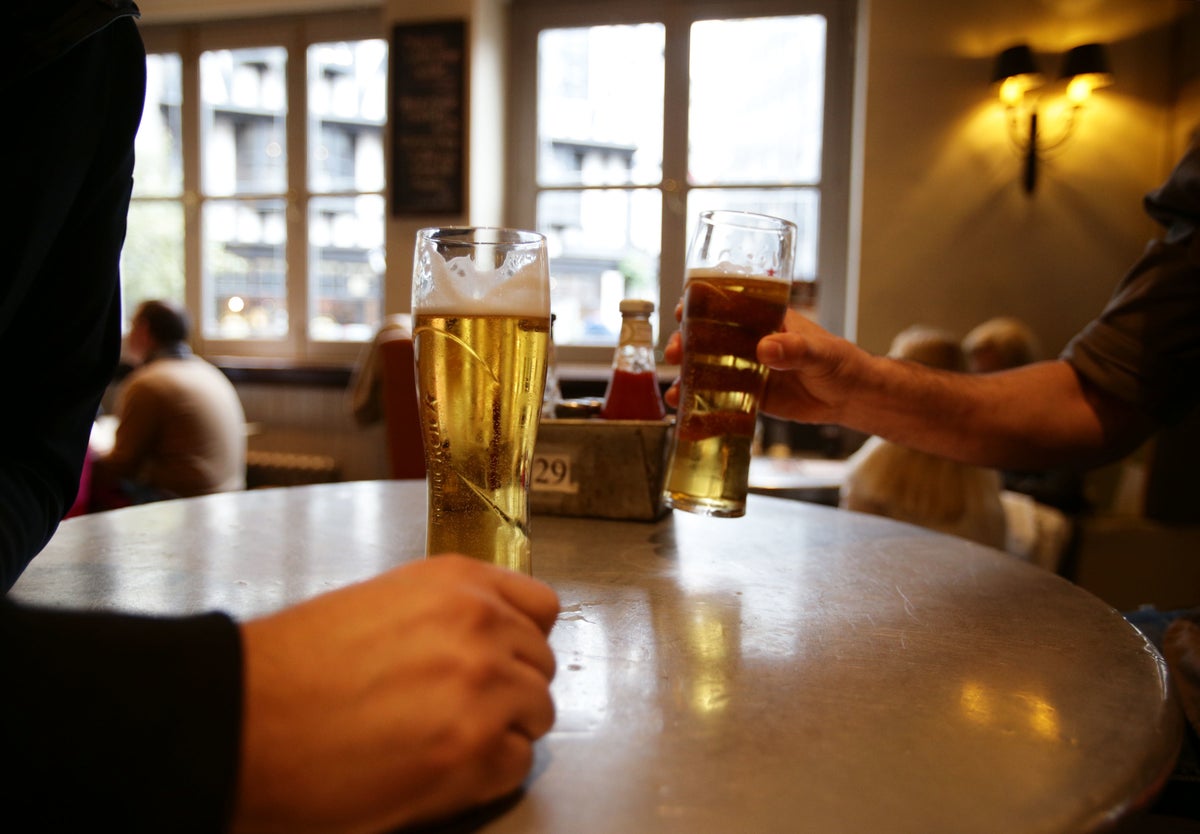
The link between alcohol and cancer has been highlighted in updated guidance for healthcare professionals.
The guide, published by Scottish Health Action on Alcohol Problems (SHAAP), notes that drinking alcohol is a risk factor for several cancers.
Around 6.5% of deaths in Scotland in 2015 (the last time these figures were calculated) were attributable to alcohol consumption, and more than a quarter (28%) of these alcohol attributable deaths were due to cancer, the guidance states.
It suggests that healthcare professionals can help to reduce alcohol-related cancer risks by informing patients about the risks of cancer from drinking alcohol, and providing guidance and support to help people reduce how much of it they drink.
We are hopeful that this publication can act as a tool to help educate healthcare professionals— Dr Alastair MacGilchrist
Dr Alastair MacGilchrist, SHAAP chairman, said: “There is clear evidence that alcohol increases the risk of developing a multitude of cancer types.
“Alcohol harm is one of Scotland’s biggest health issues, and healthcare professionals have an opportunity to inform their patients about the risks between alcohol and cancer and thereby reduce the risk that those patients will develop alcohol-related cancers and other alcohol harms.
“This updated guidance provides healthcare professionals with a summary of the relationship between alcohol and cancer, sets out the patterns of alcohol use and harms in Scotland by age, gender and socioeconomic status, and outlines the different avenues for treatment and prevention of harmful or hazardous alcohol use.
“We are hopeful that this publication can act as a tool to help educate healthcare professionals, mitigate the risk of alcohol-attributable cancer, and support those with alcohol-related problems.”
SHAAP is a partnership of the Medical Royal Colleges in Scotland and the Faculty of Public Health and is based at the Royal College of Physicians of Edinburgh.
The guidance notes that male drinkers are twice as likely to drink above the recommended maximum of 14 units a week as female drinkers.
In 2019, levels of drinking which exceeded the recommended weekly limit were 32% for men compared to 16% for women.
It also highlighted that average weekly levels of self-reported alcohol consumption tend to be higher in more affluent groups.
For cancer prevention, we recommend not drinking alcohol at all— World Cancer Research Fund
In 2019, the prevalence of hazardous and harmful drinking levels was highest among those living in the least deprived areas of Scotland (30%) and was lowest among those living in the most deprived areas (17%).
However the highest levels of alcohol-related hospital admissions and alcohol-specific deaths were seen in the areas of highest socioeconomic disadvantage
According to the 2016 UK Chief Medical Officers’ low risk drinking guidelines, in relation to cancer risk there is no safe level of alcohol consumption.
The risks associated with cancer start from any level of regular drinking and rise with the amounts of alcohol being consumed.
Matthew Lambert, health information and promotion manager at World Cancer Research Fund, said: “We welcome this updated guidance for health professionals in Scotland, especially as they play a vital role in helping reduce alcohol-related cancers.
“For cancer prevention, we recommend not drinking alcohol at all. If people do choose to drink alcohol, the UK guidelines for men and women is to drink no more than 14 units a week, spread over at least three days.”







